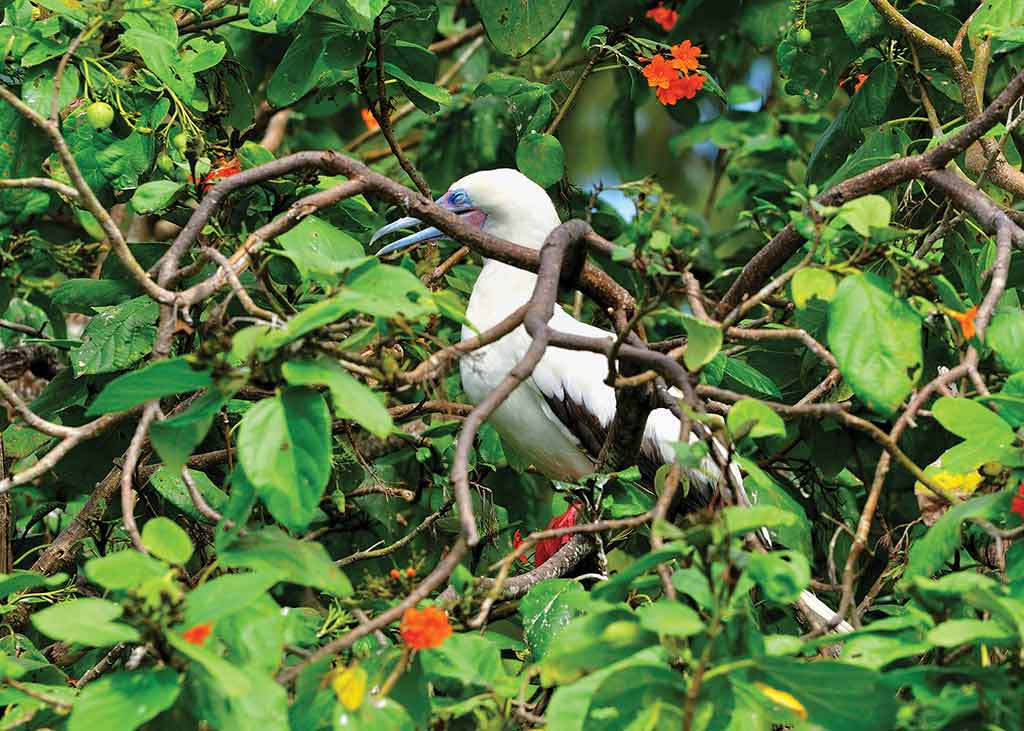How Travelers Can Help Stop Wildlife Poaching in Belize
TIME : 2016/2/16 14:51:23
You are guaranteed to see wildlife in Belize, whether in the wild or in captivity. However, in Belize some poached birds and wildlife are often sold on the international market, while others end up in Belizean homes or in businesses who want to add “color” to attract tourists. Belize Bird Rescue, a nonprofit organization, reports that 65 percent of all wild-caught captive birds die before they reach sale. Of those that make it, most are sold to people who have no idea how to raise a baby bird.

The red-footed booby colonizes Lighthouse Reef’s Half Moon Caye, a protected breeding site. Photo © Lebawit Lily Girma.
This is particularly a big deal for the yellow-headed Amazon parrot (Amazona oratrix), a gorgeous species under serious threat of extinction in the world. Its numbers have plummeted from 70,000 to 7,000 in the last two decades. Human encroachment on their habitat fuels nest-robbing for the illegal pet trade.
To discourage the illegal trade in parrots and other animals:
- Don’t have your photograph taken with captive indigenous wildlife. By encouraging the keepers of the wildlife, more will be taken from the wild.
- Don’t patronize establishments with captive wildlife on display unless they are government sanctioned as a breeding or educational facility such as a zoo. There is no educational value to a single monkey or bird in a restaurant.
- Don’t believe anyone who tells you that they “rescued” an orphan animal or bird, unless they run a licensed rescue facility. The vast majority of these animals were captured from the wild or bought from dealers. If people really want to rescue a bird or animal, they will turn it over to a proper rescue or rehab facility.
- Don’t buy goods made from animal hides, skins, teeth or claws, or exoskeletons such as bugs and corals. Some leather goods are okay, but exotic ones (crocodile, snake, etc.) normally are not. Jewelry made from jaguar teeth has also appeared on the streets being offered to tourists. Buying them contributes to the decline of the remaining jaguar population. In Belize it is also prohibited to sell any products made out of sea turtles.
- Do contact the Belize Forest Department (tel. 501/822-2079) if you observe any conditions where endangered terrestrial animals are being held in captivity or offered for sale. If you observe the sale of turtle meat or jewelry, report the location and date immediately to the Belize Fisheries Department (tel. 501/224-4552).
Excerpted from the First Edition of Moon Belize Cayes.
